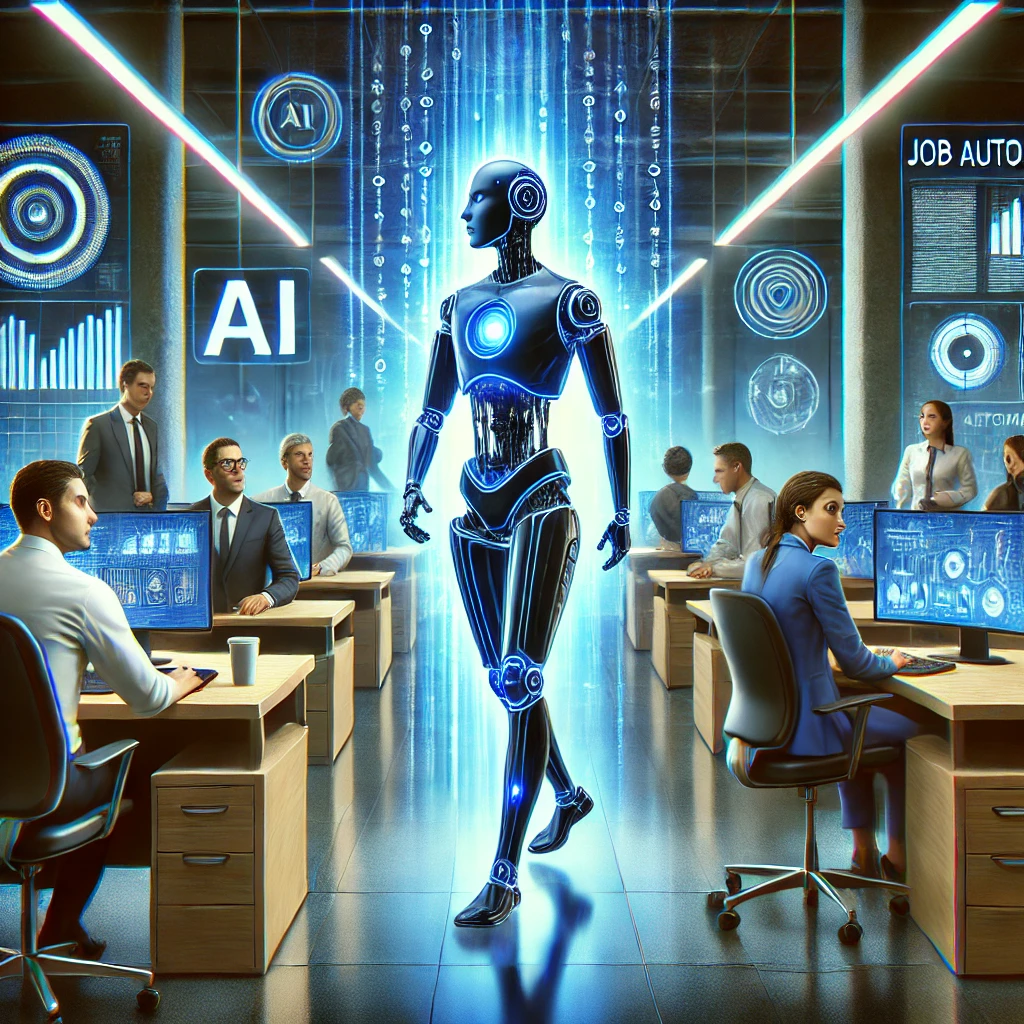What Jobs Will AI Replace? A Deep Dive into the Future of Work
Introduction: The AI Revolution and Its Impact on Jobs
Artificial Intelligence (AI) is reshaping industries at an unprecedented pace, automating tasks once thought to be the exclusive domain of humans.
While AI enhances efficiency and productivity, it also raises concerns about job displacement.
Will AI take over your job? Which professions are most at risk?

More importantly, how can you future-proof your career in this evolving landscape?
This guide will explore the jobs AI is likely to replace, the industries most affected, and actionable steps to stay relevant in an AI-driven world.
If you want to prepare for the future of work, keep reading.
Step 1: Understanding How AI Replaces Jobs
Before diving into specific jobs, it’s crucial to understand how and why AI automates certain roles.
How AI Replaces Human Jobs
AI-driven systems excel at tasks that involve:
- Repetitive, routine work (e.g., data entry, assembly line jobs)
- Pattern recognition and analysis (e.g., financial analysis, legal research)
- Predictive decision-making (e.g., inventory management, fraud detection)
- Natural language processing (NLP) (e.g., chatbots, transcription services)
The more structured and predictable a job is, the more likely AI can handle it efficiently.
Why AI is Replacing Jobs
- Cost Efficiency: AI reduces labor costs and increases productivity.
- Accuracy & Speed: AI minimizes human error and processes information faster.
- 24/7 Availability: Unlike humans, AI can work round the clock without breaks.
- Scalability: AI-powered solutions can handle large volumes of work with minimal human intervention.
Now that we understand why and how AI is taking over jobs, let’s explore specific professions at risk.
Step 2: Jobs AI is Likely to Replace
AI is already transforming the workforce. Here are some jobs at high risk of being replaced by AI and automation:
1. Customer Service Representatives
💡 Why? AI chatbots and virtual assistants can handle customer inquiries, troubleshoot issues, and process orders. ✅ Example: AI-powered customer support platforms like ChatGPT, Drift, and Zendesk AI are replacing human agents.
2. Data Entry Clerks
💡 Why? AI can process and categorize data more efficiently and accurately than humans. ✅ Example: Optical Character Recognition (OCR) and AI-driven automation tools have reduced the need for manual data entry jobs.
3. Retail Cashiers
💡 Why? Self-checkout systems and AI-powered kiosks are automating retail transactions. ✅ Example: Amazon’s Just Walk Out technology eliminates the need for cashiers entirely.
4. Telemarketers & Sales Reps
💡 Why? AI-driven sales bots can make calls, qualify leads, and close deals with minimal human intervention. ✅ Example: AI-powered CRM tools like HubSpot and Salesforce Einstein automate sales processes.
5. Manufacturing & Assembly Line Workers
💡 Why? Robotics and AI-powered machinery can perform repetitive tasks with greater precision and speed. ✅ Example: Tesla and Amazon use robotic automation in their factories and warehouses.
6. Bank Tellers & Loan Officers
💡 Why? AI-driven banking solutions can process transactions, assess credit risk, and approve loans. ✅ Example: Chatbots and AI advisors are now handling financial inquiries and transactions.

7. Paralegals & Legal Assistants
💡 Why? AI can analyze legal documents, conduct research, and draft contracts faster than human assistants. ✅ Example: AI-powered tools like ROSS Intelligence automate legal research and case analysis.
8. Radiologists & Medical Transcriptionists
💡 Why? AI-driven imaging software can analyze X-rays, MRIs, and medical scans with high accuracy. ✅ Example: IBM Watson Health and AI medical imaging solutions are revolutionizing radiology.
9. Drivers (Truck, Taxi, & Delivery)
💡 Why? Autonomous vehicles and AI-powered logistics systems are reducing reliance on human drivers. ✅ Example: Companies like Tesla, Waymo, and Uber are developing self-driving cars and delivery bots.
10. Financial Analysts & Accountants
💡 Why? AI-powered financial software can perform risk assessments, bookkeeping, and fraud detection. ✅ Example: AI-driven platforms like QuickBooks, Xero, and AlphaSense are automating financial tasks.
Step 3: Jobs That AI Won’t Easily Replace
While AI is taking over certain roles, some jobs require human skills that AI struggles to replicate. These include:
1. Creative Professions
- Artists, musicians, designers, and content creators rely on creativity and emotional intelligence.
- AI tools like DALL·E and Jasper assist but don’t replace human creativity.
2. Healthcare Professionals
- Doctors, nurses, and therapists provide empathy, diagnosis, and patient care beyond AI’s capabilities.
3. Skilled Trades
- Plumbers, electricians, and carpenters require hands-on skills and problem-solving AI cannot replicate.
4. Teachers & Educators
- AI can provide learning assistance, but human teachers bring motivation, engagement, and emotional intelligence.
5. Human Resource Managers
- AI can screen resumes, but hiring, employee engagement, and conflict resolution require human judgment.
Step 4: How to Future-Proof Your Career
If AI is replacing jobs, how can you stay relevant and ensure job security?
1. Develop AI-Proof Skills
- Focus on skills AI struggles with, such as creativity, leadership, and critical thinking.
- Improve soft skills like emotional intelligence, adaptability, and communication.
2. Learn AI & Data Literacy
- Understand AI tools and how they impact your industry.
- Take courses in AI, data science, and automation to stay competitive.
3. Embrace Continuous Learning
- Stay updated with industry trends.
- Take online courses on platforms like Coursera, Udemy, and LinkedIn Learning.
4. Work Alongside AI
- Instead of fearing AI, leverage it to boost your productivity.
- Use AI-powered tools to automate repetitive tasks and enhance efficiency.
5. Consider a Career Shift
- If your job is at risk, explore tech-related careers like AI development, cybersecurity, and digital marketing.

Adapt or Get Left Behind
AI is not the enemy—it’s a tool that can either replace jobs or empower workers.
By understanding AI’s impact, developing future-proof skills, and embracing technology, you can thrive in the AI-driven workforce.
Quick Recap:
✅ AI is replacing jobs that involve repetitive, structured tasks.
✅ High-risk jobs include customer service, data entry, and telemarketing.
✅ AI won’t easily replace creative, healthcare, and skilled trade professions.
✅ Future-proof your career by developing AI-proof skills and embracing technology.
🚀 Ready to future-proof your career?
Start learning AI-related skills today!





Pingback: Brains Behind Billions: How AI Tech is Rewriting the Global Economy - Newline Tech